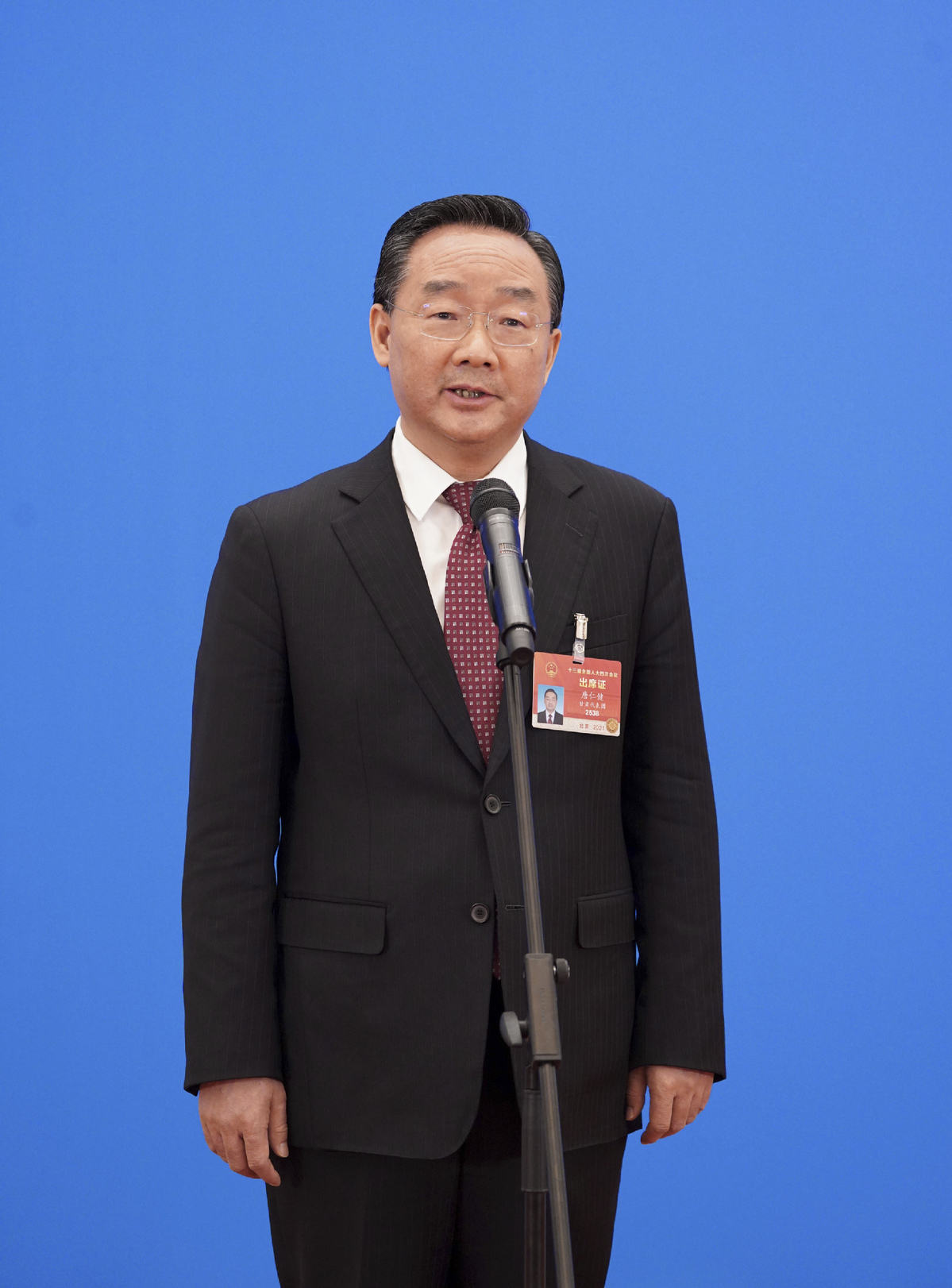
3月5日上午,十三届全国人大会四次会议首场“部长通道”在人民大会堂开启。农业农村部部长唐仁健回答记者提问。

唐仁健表示:
"As China has succeeded in poverty eradication after eight years' efforts, infrastructure in rural areas has improved a lot. But many of the achievements have only reached village level, and there are still shortfalls in the work regarding each household," Tang said.
我们经过八年的努力,脱贫攻坚已经完成,农村的基础设施和社会面貌变化很大。但是目前,农村基础设施很多只是到了行政村,村以下到户还有很多卡点和堵点,短板、弱项主要在这块。
County-level spatial planning should be accomplished this year, and practical village planning will be the next step to meet farmers' needs, he said.
今年县一级的国土空间规划要基本编制完成,完成以后,要在此基础上编制“多规合一”的实用性村庄规划。之所以强调实用性,就是要照顾农村的特点和农民的需要。
"We will extend better infrastructure, in terms of water, electricity, roads, gas and housing, to each village and household," he added.
建好硬件。硬件主要是水电路气讯,这方面以前也在搞,往后我们主要倡导和推动向村去覆盖、向户去延伸。
The main roads in villages have to be built to facilitate farming life and production, and further boost local businesses and tourism. Local governments will improve storage facilities and cold chain logistics to help open up the circulation of agriculture products, Tang said.
通村的道路、村里面的主干道,还有连接周边那些基地的资源路、产业路、旅游路。还要建设仓储设施和冷链物流,解决好农产品上行和工业品下行的问题。
Meanwhile, public services such as access to education, health care, and elderly care will be further enhanced in villages, he added.
社会服务这几年变化非常大,今后要继续提升,力求让农村的上学条件、医疗条件、养老条件更好一点。